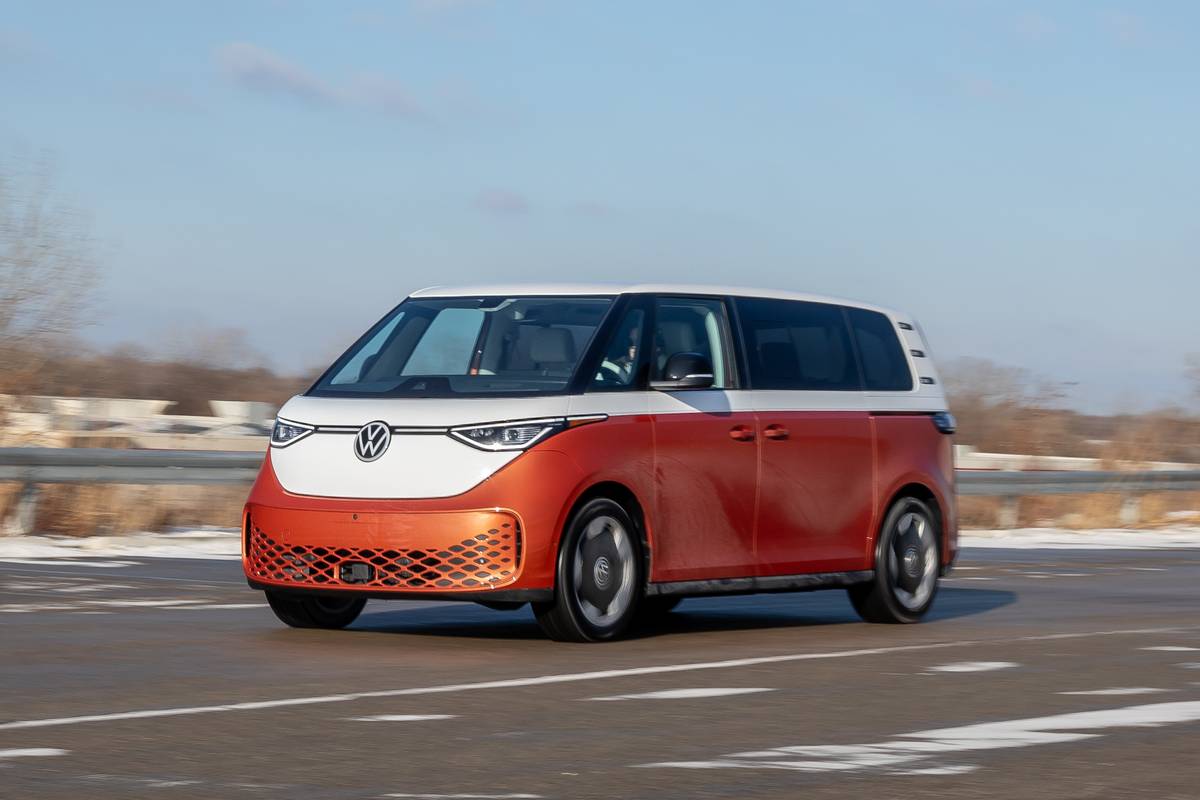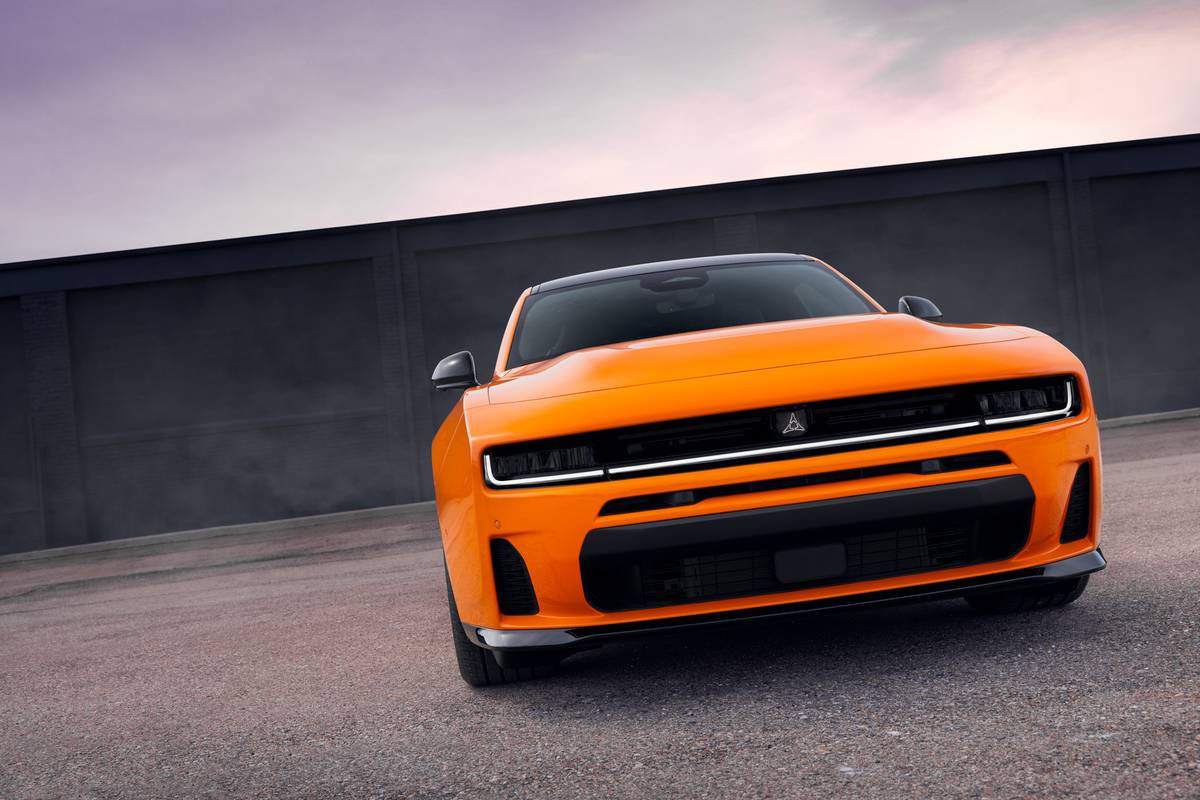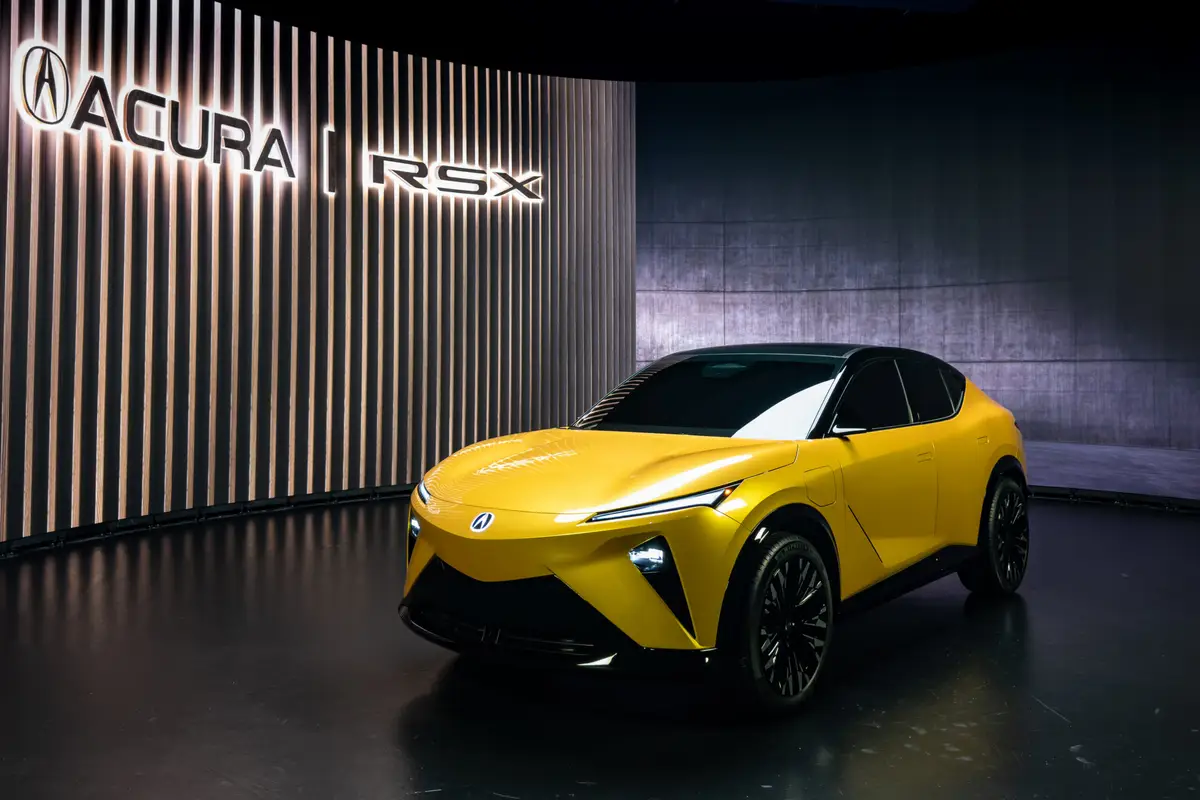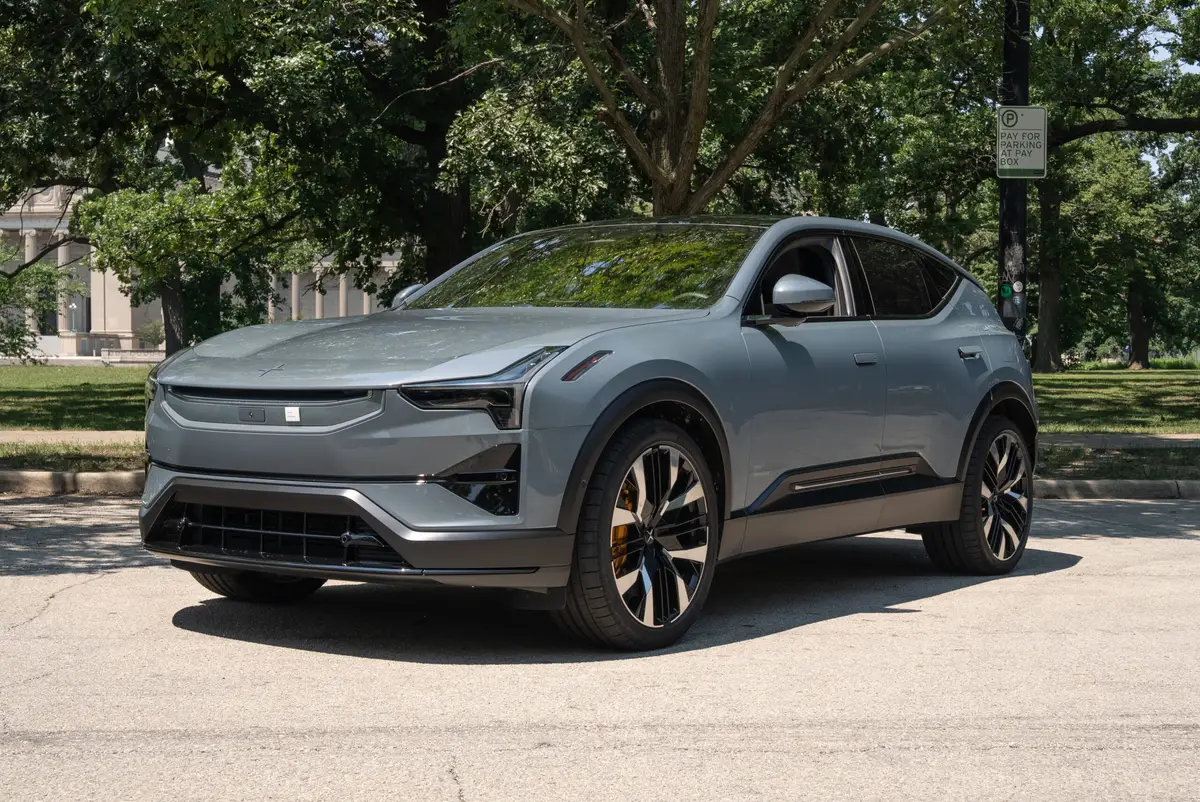2025 Volkswagen ID. Buzz Vs. 2024 Kia EV9: Cold-Weather Efficiency Test

As part of our comparison testing of the 2025 Volkswagen ID. Buzz and our long-term 2024 Kia EV9, we took the two all-electric people haulers on a cold-weather efficiency test to see how they performed in cold temperatures. (After all, many of the biggest holiday occasions for family road trips are during the coldest months.) According to EPA estimates, both electric vehicles are almost equally efficient — the EV9 is rated at 83 mpg-equivalent combined and uses 41 kilowatt-hours per 100 miles of driving, while the ID. Buzz is rated at 80 mpg-e combined and 42 kWh per 100 miles. Both of those energy-use ratings calculate to approximately 2.4 miles per kWh, so we expected things to be close. Were our expectations accurate?
Related: 2025 Volkswagen ID. Buzz Vs. 2024 Kia EV9: Which Is the Better Family EV?
How We Tested
We charged the two EVs up to 100% state of charge, then set off on a roughly 100-mile route. We drove normally, neither speeding nor hypermiling, with the climate set to its auto mode and a comfortable temperature. We kept the windows up, though the cold weather — it was just 17 degrees Fahrenheit outside when we started — would’ve necessitated that anyway. At roughly the halfway point in our drive, we switched EVs to balance out our respective driving styles, and we also preconditioned the batteries before we arrived at our stopping point, an Electrify America public 350-kilowatt DC fast-charging station. We charged the two EVs up to 80%, just as we would if we were on a road trip. It’s best to stop at 80% state of charge when DC fast-charging — both to preserve battery health and because, more often than not, these charging stations start significantly throttling charging speed at 80%, so you’re better off leaving and making your way to your next charging stop or final destination.
The Results
Related Video:
At the start of our drive, the EV9 showed 249 miles of estimated range, while the ID. Buzz showed 198 miles — both approximately 30 miles less than their maximum estimated range, which can be explained by the cold weather. When we reached the charging station, the EV9 had traveled 113 miles but had consumed 135 miles of estimated range, with the battery showing a 47% state of charge and 114 miles of estimated range. Its average trip-computer efficiency was 2.1 miles per kWh. We charged up to 80% in 21 minutes and added 90 miles of estimated range, giving us 204 miles total. Considering our roughly 83% efficiency, however, we realistically had 169 miles of range.
The ID. Buzz, meanwhile, traveled 111 miles according to its odometer. But it consumed 150 miles of estimated range at a rate of 1.8 miles per kWh, leaving us with a battery at 25% and just 48 miles of estimated range when we reached the charger. Charging to 80% took 23 minutes and added 113 miles of estimated range, bringing the range estimate to 161 miles — or, using the same math as above, possibly closer to 119 miles of driving range considering the VW’s 74% efficiency.
More From Cars.com:
- Is the 2025 Volkswagen ID. Buzz Really a Minivan?
- How Well Does the Kia EV9 Work for a Cold-Weather Road Trip?
- Long-Term Kia EV9 Update: What We’ve Learned After 10,000 Miles
- Shop for a 2025 Volkswagen ID. Buzz Near You
- Shop for a 2025 Kia EV9 Near You
What Did We Learn?
Our drive route was not long enough to give us significant range anxiety, but the prospect of stopping roughly every 120-150 miles on a family road trip, in the cold, for roughly 20-25 minutes, is not appealing. Especially because our DC fast-charging station, as they often are, was well off the highway and tucked away in a distant corner of a Sam’s Club parking lot.
Of the two vehicles, if we had to choose one for this kind of trip, we’d likely pick the EV9. Its slightly better efficiency and longer overall range would reduce the number of times we’d have to stop, shortening the amount of time it would take to reach our destination and making the experience slightly more tolerable.
Cars.com’s Editorial department is your source for automotive news and reviews. In line with Cars.com’s long-standing ethics policy, editors and reviewers don’t accept gifts or free trips from automakers. The Editorial department is independent of Cars.com’s advertising, sales and sponsored content departments.
Featured stories



2025 Polestar 3 Review: Understated Electrified Luxury

